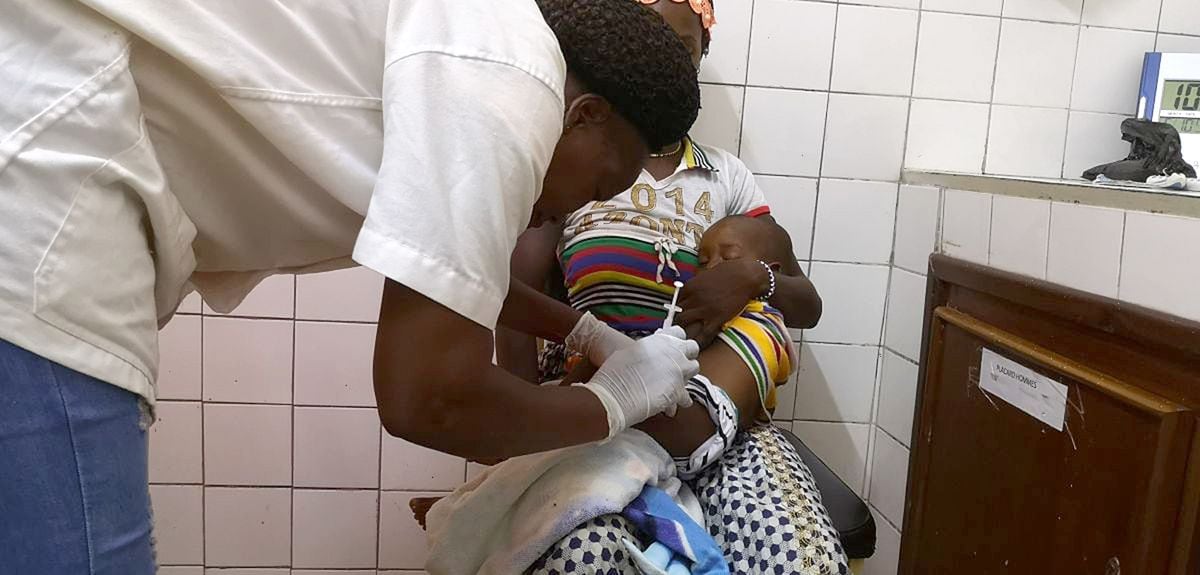That the covid-19 pandemic has come to stop the world is only half true. Because, as the virus spread and forced us to confine ourselves to the home, other infectious diseases of similar or even greater magnitude followed their course. Such is the case with the malariawhich in recent years has continued to affect the most vulnerable populations on the planet, perpetuating social inequalities and inequalities in global health.
Malaria is a parasitic infection whose causative agent, plasmodium, has infected humans for thousands of years, making it one of the oldest plagues facing society. It is one of the most important causes of illness and death in the world. The most recent data shows that it causes around 241 million clinical cases worldwide each year. There are between two and four million serious cases and about 627,000 deaths, mainly in Africa and among children under the age of five, the group that accounts for most of the deaths. In the first 15 years of the 21st century, we have seen a notable decrease in the global incidence rate of the disease, as well as the interruption of transmission and eventual elimination in many countries. However, and alarmingly, in the years leading up to the pandemic, the global situation in the fight against malaria was stuck at a difficult crossroads, with the risk of seeing many of its anticipations regress.
The coronavirus pandemic has appeared in this delicate context. At first, attempts were made to predict the consequences it could have on malaria, with estimates indicating that, in the worst case, deaths could double. Although the worst-case scenario can be said to have been avoided, 2020 data points to a 12% increase in global malaria mortality and up to 14 million additional infections compared to 2019. Up to two-thirds of these new deaths could be attributed to interruptions in the provision of disease prevention, diagnosis and treatment services during the covid-19 emergency. It has been observed that Africa is the area that suffers the most from the ravages of this pathology.
There was a 12% increase in malaria mortality globally in 2020 and up to 14 million more infections than in 2019
Although to a lesser extent than expected, covid-19 has led to a regression, which has brought us back to the morbidity and mortality figures of a decade ago, a state from which it will take years to fully recover. In any case, it is important to underline the enormous effort that international and national actors have made. This was an extraordinary response to mitigate the impact of the pandemic on essential malaria services.
To achieve the ambitious goals of controlling and eliminating malaria, a new perspective is needed to improve our understanding of its biological aspects, as well as the cultural, social and political factors that can influence its transmission. Furthermore, it is necessary to optimize the design of next-generation tools and strategies to combat this disease. Funding programs and information and data management systems need to be improved. All of this should always go hand in hand with strengthening health systems and promoting universal health coverage, precisely because health systems are weaker in areas where malaria remains highly endemic.
On the other hand, the pandemic can be seen not only as an obstacle, but as a model. The unprecedented results observed in its containment set an example to follow, given the extraordinary speed in the advancement of preventive and therapeutic measures, along with the unusual collaborative strategies that have been observed around the world.
To achieve all this, it is essential that malaria is placed at the top of our health priorities, something that has not happened to date: the fact that this disease affects the most defenseless populations of the most vulnerable countries, such as the case of Africa. children, they can justify this indifference. To reverse this situation a change of mentality is necessary, something within our reach, since the reaction to covid-19 has also taught us that success in the fight against a certain disease is, ultimately, a matter of will.
You can follow PLANETA FUTURO on Twitter, Facebook And Instagramand sign up here a new ‘newsletter’.


